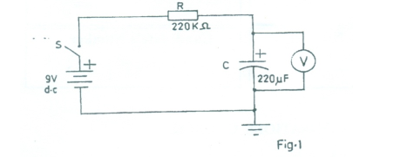Question 1
- A customer brings a television set to a Radio, Television and Electronic Works (RTV) workshop for repair, complaining of no picture but sound working normally.

State:
- one business record needed to be completed;
- four information required on the record in 1(a)(i).
- After taking proper record of the television set in 1(a), the technician prepares the work area for repairs. State two:
- stages of the television the technician is expected to troubleshoot;
- fault finding equipment the technician is likely to employ;
- handtools required to carry out the repair;
- safety precautions needed to be observed by the technician.
Observation
The expected answers were:
-
- Repair order form
- Information required on the record in 1(a)(i)
- Name of owner/customer
- Model/make of TV receiver
- Date of receipt
- Nature/description of complaint/symptoms
- Probable date of collection/delivery
- Owners contact/phone number/address
- Total service charge
- Amount deposited
- Amount to be paid on collection/delivery
-
-
Stages suspected for troubleshooting
- Horizontal stage
- Vertical stage
- Video stage
- Picture tube
-
Fault finding equipment to be employed
- Oscilloscope/cathode ray oscilloscope
- Frequency counter/digital frequency counter
- Television analyzer
- Logic probe
- Signal tracer
- Multimeter
- Transistor tester
-
Handtools required to carry out repair
- Longnose pliers
- Solder sucker
- Desoldering pump
- Screw driver
- Soldering iron
- Desoldering tools
- Soldering gun
- File
- Emery paper
- Tweezers
-
Safety precautions needed to be observed by the technician
- Discharge high voltage capacitors to prevent electric shock
- Remove cable/chord from power source before opening the back of TV receiver
- Avoid excessive heat when soldering to prevent damage of components
- Use the right tool for the right job
-
Stages suspected for troubleshooting
